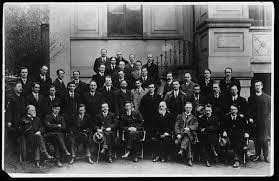
This year 2022 will be a sensitive and difficult one in the Irish decade of centenaries, 2013-2023, because it recalls the divisive acceptance of the Anglo-Irish Treaty, the start of the Civil War, the killing of Michael Collins and the foundation of the Irish Free State. After weeks of difficult negotiations in London, during which the UK refused to recognise ‘an Irish Republic’, articles of agreement, generally known in Irish history as the Anglo Irish Treaty, were signed on December 6, 1921, providing for an Irish Free State in the twenty six counties as a self-governing dominion within the British Commonwealth, with the monarch as Head of State, and Irish Members of Parliament obliged to take an oath of allegiance to the Crown. The six counties of Northern Ireland, which had its own parliament from June 22, 1921, was given the right to opt out. After a bitter Dáil debate, where the oath emerged as the main issue, the treaty was ratified by sixty-four votes to fifty-seven on January 7, 1922. The Irish Free State Provisional Government was established on January 14, 1922, with Michael Collins as chairman. Until September, there was a system of dual government in Ireland, with the Dail and provisional government functioning concurrently. Dublin Castle, the centre of British rule in Ireland, was surrendered to the Irish and the British withdrew their soldiers and administration. On 16 June, a general election was held, which resulted in the pro-treaty group winning 58 seats, anti-treaty followers 36, Labour 17, and various independents 17. Despite an election in June 1922, which supported the treaty, civil war broke out soon afterwards, which lasted from June 28, 1922, until May 24, 1923. Animosity between supporters and opponents of the Anglo-Irish Treaty within the republican movement started to ferment even before the agreement. The civil war, which ended with the surrender of the anti-treaty republicans, claimed about 4,000 casualties and caused considerable damage to property. Even supporters of the treaty believed that partition would be temporary as article 12 of the treaty provided for a Boundary Commission, which was expected to give more territory to the Free State and make Northern Ireland unviable. The commission turned into a disaster for the Free State. The rights and wrongs of the Civil War dominated Irish political life for a generation and relegated economic, social and cultural development to second place whilst the cream of Irish youth emigrated.
The Irish Free State (Saorstát Éireannn) came into existence on December 6, 1922, one year after the treaty, following the adoption of a Constitution by the Dáil in October 1922. The constitution implemented the provisions of the treaty, including the oath of allegiance and the governor-general representing the monarch. While executive authority was vested in the monarch, his/her power was nominal, with actual power residing with the executive council led by a president nominated by the Dail. The Northern Ireland parliament opted out of the Irish Free State, as was expected. There were then two jurisdictions on the island of Ireland. Northern nationalists found themselves abandoned and alienated, living as second class citizens under continuous sectarian one party rule, which sowed the seeds of later conflict. There was also a minority of unionist supporters in the Irish Free State. De Valera grew frustrated with Sinn Fein, and founded a new party, Fianna Fail, in 1927, which came to power in 1932. Various changes to the treaty took place over the years, especially from 1932 to 1936 when symbolic structures of Crown supremacy, that were divisive in 1922, were gradually dismantled. A new Constitution was adopted by plebiscite on Ju1y, 1937. It came into effect on 29 December 1937, under which the State became an independent republic in all but name, known as Éire in Irish and as Ireland in English (articles4 and 5). While an Irish Republic was proclaimed in 1916, and re-affirmed by the First Dáil on January 21, 1919, it was 1949 before it became a reality at midnight on April 18 that year under the Republic of Ireland Act, when Ireland left the British Commonwealth.
